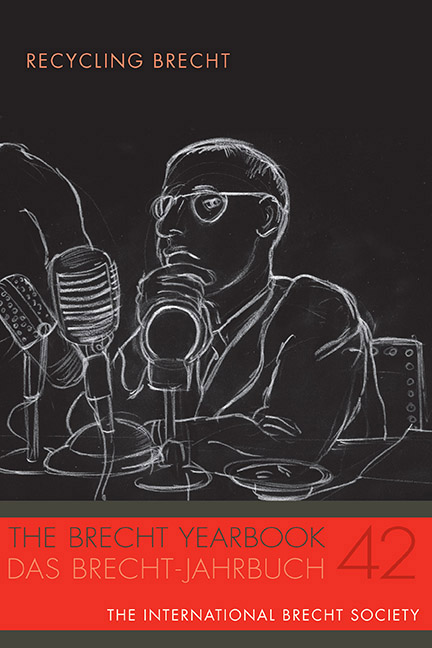Branislav Jakovljević. Alienation Effects: Performance and Self-Management in Yugoslavia, 1945–91. Ann Arbor: University of Michigan Press, 2016. 382 pages.
Published online by Cambridge University Press: 09 April 2021
Summary
John Willett's 1964 translation of Brecht's Verfremdungseffekt as “alienation” ties the term to labor theory and social relations while rendering less visible its association with early twentieth century Russian formalists such as Viktor Schlovsky, who proposed that a property of all art is to “make strange” our experience. Brechtian performance at its best interweaves both social and aesthetic defamiliarization. And in his extraordinarily careful study of performance in Yugoslavia, Branislav Jakovljević “makes strange” reductive historical narratives of midcentury artistic practices and of Yugoslavia's demise, in part, through reexamining “alienation” in its multiple valences. Alienation Effects roots shifts in “self-management”—as a historical collective labor practice and emergent technology of the individual— and ties these shifts to collective, institutional, and conceptual performance practices in post-World War II Yugoslavia.
Meticulous case studies embrace selected mass and micro-performances ranging from Youth Day festivals to artistic works that use the Yugoslav currency as canvas for commentary. Illustrations evoke performance aesthetics alongside the means of their circulation. Jakovljević weaves archival research (including political documents, conference papers, and exhibition photos), interviews, and his own memories with in-depth yet deftly synthesized framings of economic, cultural, and performance theory. He does so in lucid prose sparkling with dry wit and precise analogy. His argumentation can conjure a thunderstorm punctuating a private performance of Waiting for Godot in a Belgrade artist's studio while nuancing distinctions among humanist Marxist, psychoanalytic, and postmodern notions of alienation.
Jakovljević frames his study as an intervention in art historical and political narratives that position performance art's “social turn” within either dissident Eastern or critical Western European practice. He does so by offering Yugoslavia as a geographical and historical fulcrum point with 1968 at its center. Jakovljević carves out his argument with analytic lenses that embrace the work of art—as both object and process—addressing performance as a representational labor practiced within a set of cultural, political, and economic institutions. While not attempting to survey Yugoslavia's performance field, Jakovljević organizes his decade-by-decade study in three distinct periods rooted in shifts in self-management. Chapter 1, “Bodywriting,” focuses on Yugoslavia's departure from Soviet economics and artistry in the 1950s and early 1960s.
- Type
- Chapter
- Information
- The Brecht Yearbook / Das Brecht-Jahrbuch 42Recycling Brecht, pp. 281 - 283Publisher: Boydell & BrewerPrint publication year: 2018

